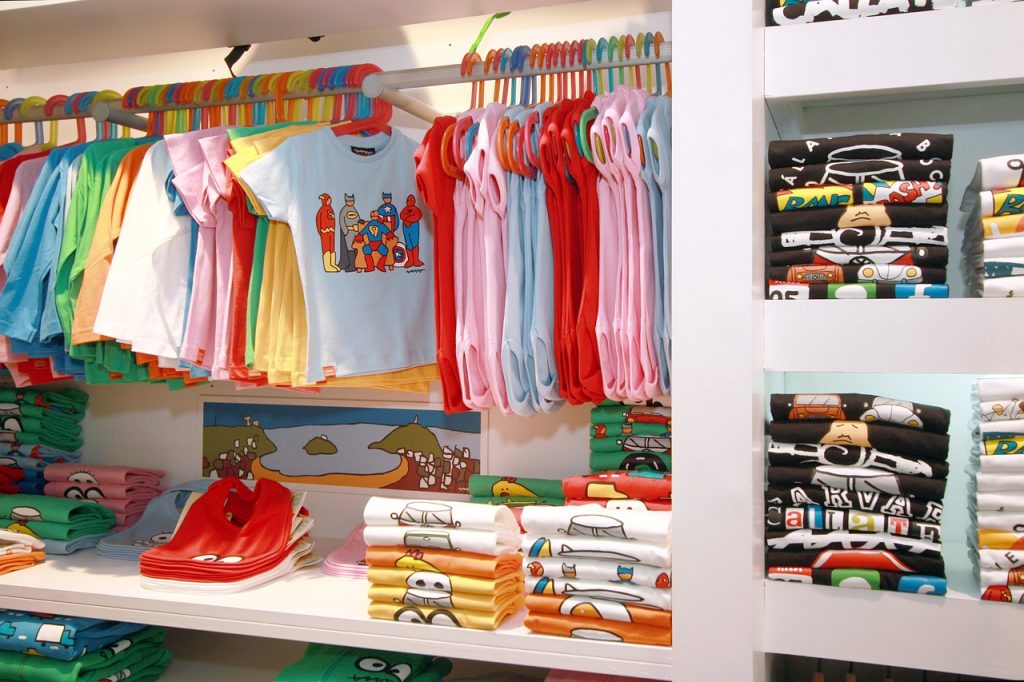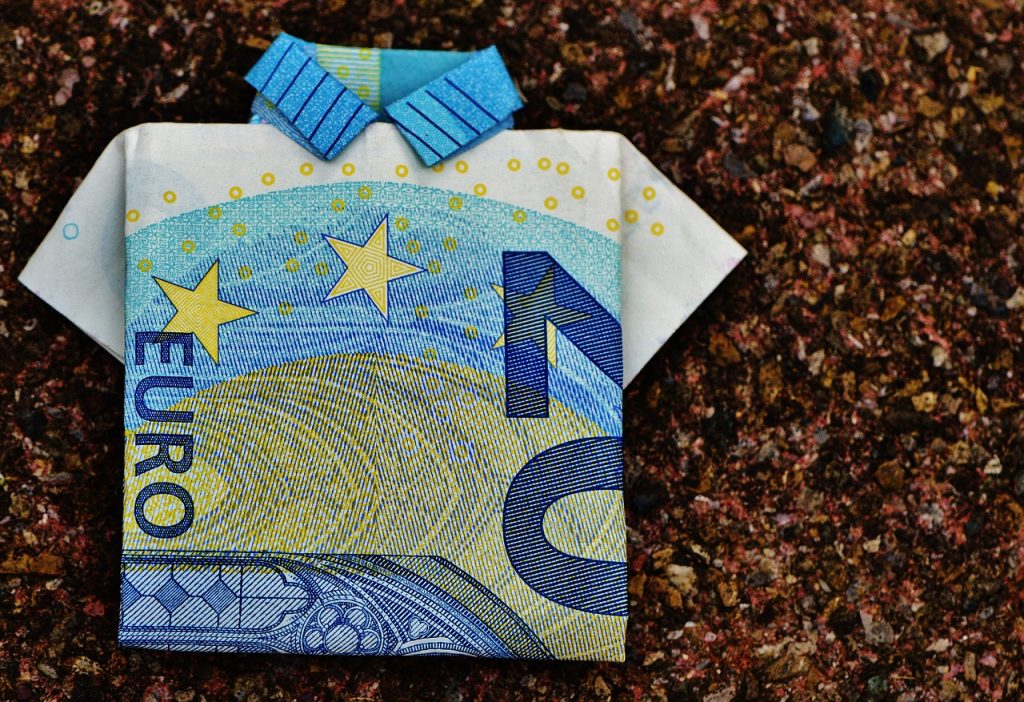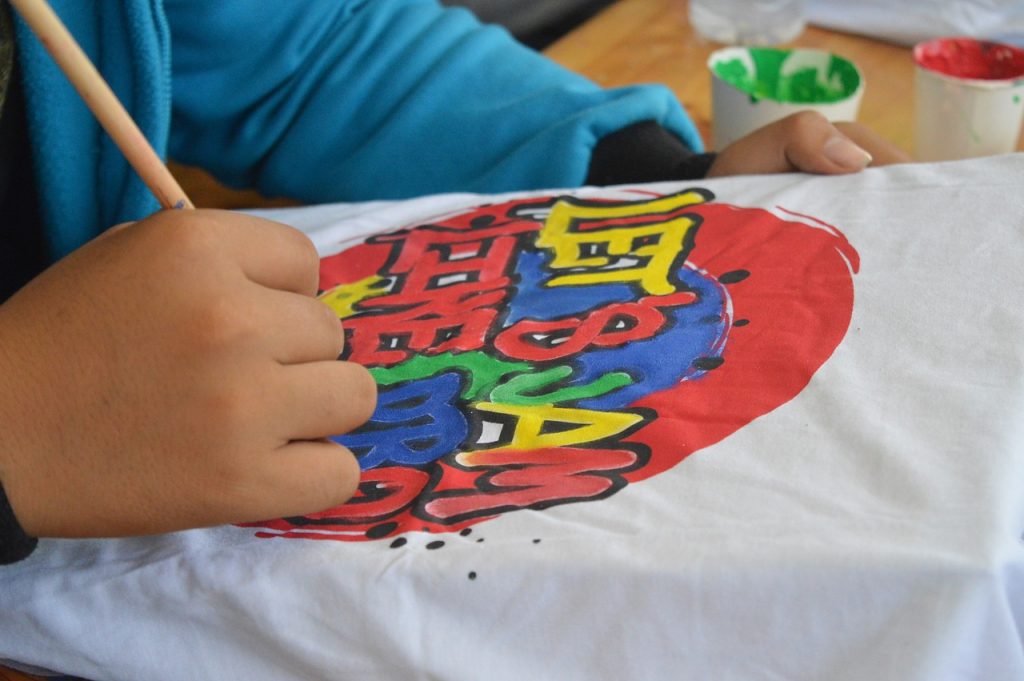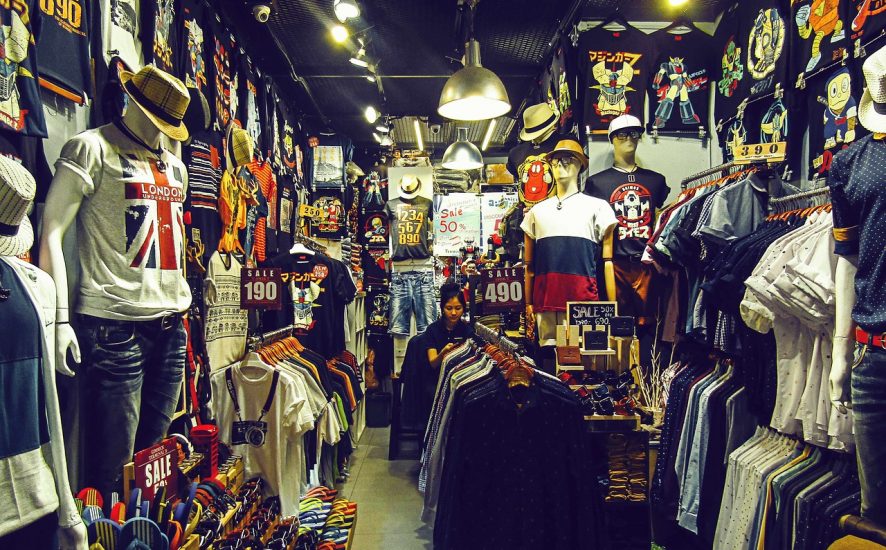You’ve got plenty of great ideas. You have a catalogue of awesome designs. In your mind, you have a whole t-shirt business enterprise. But, where do you start? How do you make it happen? What do you do, or don’t you do?
How do I start a t-shirt business?
Well, there is no need to fret. We have this one covered. When it comes to t-shirt printing, we’re kinda the pros. So, we’ve put together some comprehensive answers to the 6 most frequently asked questions on starting a successful t-shirt business and put them all together in one place for you.
1. How do I start my own t-shirt business?
This one is possibly the least cut and dry answer, so we thought we would jump straight in with it. There are 3 main ways that you can do this, and we have outlined those below. Remember that you don’t have to pick one and stick solely to it. There are multiple shops, for example, which have both an online and offline store.
Offline
To set up an offline t-shirt business you need a few things. Once you have decided whether you intend to have a bricks-and-mortar store or roam more in terms of attending markets and craft fairs, you need to develop branding, make sure that people know where you will be and when, and finally get your hands on enough of your stock in enough sizes to ensure you don’t run out.
This is a pretty limited option, but it does have its plus points. When it comes to starting any kind of commercial business offline there are some instant limitations that you will encounter. The main ones being reach and location. You’re mostly limited to where you’re based, or at least where you can get to easily. The same goes for the reach as well, you can print and drop flyers etc, but again are limited to where the business is based.

Online
This method is similar to the offline method, however rather than setting yourself up with a market stall or a store, you would create a website instead. You will still need to develop your branding and make sure that you push your name out there, and then stock up – but once everything is up and running then you can do most of the day to day business from the comfort of your own home – at least in the early days.
This gives you a much broader reach as well as the ability to broaden the location to anywhere your chosen delivery service will take your beautiful tees. It does stop the hands-on nature of the business, which means that people won’t be able to see and feel the item before purchase so it’s important to make sure you accurately describe (and photograph if possible) the products.
Drop-shipping
Drop-shipping is similar to the online model of starting your own t-shirt business. The main difference here is that there is no stock holding on your part. You would need to set up a storefront or website, develop your branding and get yourself known just as you would with the online method, however unlike with the other two plans, there is no need to stock up here. The drop shipper will send the product directly to your customer once the order has been placed.
This gives you not only a broader reach than the offline version, but it takes some of the strain, especially financially, away from getting yourself set-up and started. You don’t have to forecast sizing, you don’t have to fill your garage, kitchen, and every other inch of spare space in your house with stock, and neither would you have to ship it out yourself.
2. Can you still make money selling t-shirts online?
To be honest, this all depends on what you have to offer. If you are offering the same products and designs than everyone else, especially if it’s at a similar or higher price point, then to be completely honest with you it’s kind of unlikely that you will make money doing so.
That being said, there is a huge market for t-shirt printing at the moment. More so than in previous years, people are using t-shirts as a way to express themselves, celebrate their fandoms or to spread a message. So if you have the right designs, then you can certainly make money selling your t-shirts online.

3. Is t-shirt printing profitable?
This is also a subjective one. As above, it does depend a lot on what you have to offer. It also depends on the t-shirt business model that you choose. If you’ve had to pay out for stock, it will take longer to replenish that and then start making a profit, whereas with a drop-shipping model you will start seeing profit much more quickly. If you have a physical store then you will have overheads to take into consideration as well when working out what your profit is.
In all instances, it is entirely possible to build your t-shirt printing business empire and have it be profitable. One of the main pieces of advice we can give you here, is to have a plan. It’s so easy to knock out a number of designs, upload them to a platform, and then just do nothing. However, that’s not a method that will be profitable. You might get the odd sale here and there, but it certainly will not be something that you would consider a business.
4. What do I need to know to design t-shirts for my brand?
There is one very big, very simple and super important answer here. Your audience. It’s all well and good to create a t-shirt design that is full of shooting stars and planets, but if your target audience wants florals, then you’re not going to get very far.
Do some research. Not just into the designs. Find out what colour palettes are popular with your target audience. Think about where you are going to be promoting your t-shirt business. Think about your brand, your logo, your colour schemes. Do the two gel together nicely? You want people to look at your t-shirts and immediately think of your business.

5. What is the image resolution for t-shirt printing?
This will depend on who is printing your t-shirt. There are some guidelines and ballpark figures that you can aim for, however.
They always said three is a magic number, and the optimal print resolution follows that same trend. 300 dpi (dots per inch) is the golden ticket to t-shirt printing. This allows you to resize your image or alter it without losing the quality.
You can usually print at a reasonable size with an image of around 150 dpi, but it won’t be as crisp an image, and you will be limited as to the maximum size that you can print it at. Some places can print as low as 72 dpi, but this will depend on the colours and the size of both the image and the t-shirt.
6. How do you put a logo on a shirt?
There are a couple of different ways to do this, depending on how you want your logo to appear.
Breast-pocket logo
If you want a small breast-pocket style logo then you will need to work out how big you want the logo to be. The Contrado design interface comes fully equipped with handy rulers, so you can see how big it will actually come out. Upload your logo as an image, and position it where you want it to sit. This is often easier to work out on the fitted style tees.

Main feature logo
If you intend for your logo to be the main design on your tee then this is a very different story. You will want a much more enlarged logo, with a highly contrasting colour scheme to that of the t-shirt, and you will also likely want it to be pretty centred. Our design interface has a centre button (located in the middle of the directional buttons) which will place your image precisely in the centre of the t-shirt pattern.
Label Logo
If you want to make sure that your logo is on your t-shirt printing, but you don’t necessarily want it to be seen, then a label logo is a great solution. Almost all of our garments allow you to create your own custom label. This is a great way to provide a constant reminder to your customers where they got this great tee from without literally screaming it from the rooftops.
Create your own t-shirt business
If you have your plan, you know your audience and you have the designs and want to get started with your very own t-shirt business, then you’re definitely in the right place. Check out this link on how to become a Contrado seller and get your t-shirt business storefront set up. Alternatively, you can click on the banner below and start selling through Shopify as a drop-shipper.



